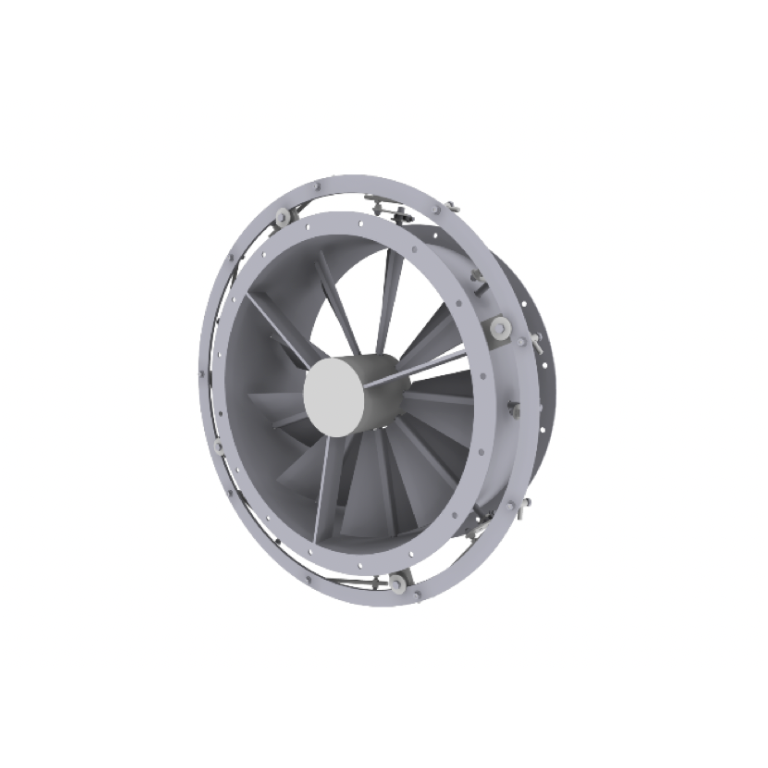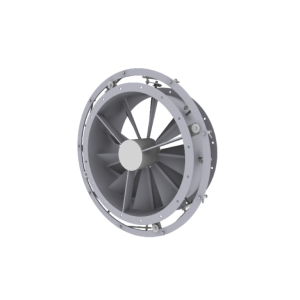Industrial Dampers are advanced automatic control devices designed to regulate airflow, fluid flow, pressure, and temperature with precision in demanding environments. Built with high-quality materials and engineered for durability, these dampers provide stable performance and long service life. Shandong Wanneng Group offers industrial-grade dampers that integrate seamlessly into HVAC and process systems, ensuring energy efficiency, safety, and operational reliability for various industries.
Detailed Description
Industrial Dampers play a vital role in ventilation, air conditioning, and air purification systems, as well as industrial process control. Designed with split-leaf or straight-leaf structures, they serve as precise control valves for different applications. Constructed from iron plates, galvanized sheets, aluminum alloys, or stainless steel, they are highly resistant to corrosion, heat, and wear, making them suitable for long-term use in harsh environments.
The dampers operate through a coordinated system of actuators, sensors, and controllers to ensure accurate adjustments. The actuator responds to control signals, the sensor monitors parameters such as flow and pressure, and the controller processes the data to achieve stable system performance. With excellent airtightness and a leakage rate of just 5%, these dampers deliver energy-efficient air management. Their compatibility with national standards for rectangular duct connections ensures easy installation across a wide range of commercial and industrial systems.
Technical Specifications
| Attribute | Specification |
|---|---|
| Product Type | Industrial Damper |
| Structure | Split-leaf or Straight-leaf design |
| Materials | Iron plate, Galvanized sheet, Aluminum alloy, Stainless steel |
| Components | Actuator, Controller, Sensor |
| Air Leakage Rate | ≤ 5% (Excellent airtightness) |
| Connection Standard | Compatible with national rectangular air duct dimensions |
| Operation | Automatic control for airflow, fluid flow, pressure, and temperature |
| Applications | HVAC, Ventilation, Air purification, Industrial process control |
Key Features & Benefits
-
Durable Construction: Made from corrosion-resistant materials like stainless steel and aluminum alloy for long service life.
-
High Precision Control: Actuator, controller, and sensor work together to maintain accurate system regulation.
-
Energy Efficiency: Excellent airtightness with minimal leakage reduces energy waste.
-
Safe & Reliable: Responsive control system minimizes risks and enhances operational safety.
-
Seamless Integration: Designed to fit national rectangular duct standards for easy installation.
These features ensure stable airflow management, lower maintenance needs, and improved performance across commercial and industrial settings.
Applications & Use Cases
Industrial Dampers are widely adopted across multiple industries due to their reliability and adaptability. They are designed to ensure process safety, energy savings, and high-quality air management.
-
Commercial Buildings: Regulates airflow in HVAC systems for energy-efficient indoor comfort.
-
Hospitality & Healthcare: Provides stable ventilation and air quality control in sensitive environments.
-
Petrochemical & Chemical Plants: Maintains safe process conditions by controlling fluid parameters.
-
Power Generation & Metallurgy: Ensures reliable airflow management in high-demand systems.
-
Food Production Facilities: Supports hygienic and controlled environments for safe manufacturing.
FAQs
Q1: What is an industrial damper used for?
An industrial damper is used to regulate airflow, fluid flow, pressure, and temperature in HVAC and industrial process systems.
Q2: What materials are industrial dampers made from?
They are typically constructed from iron plates, galvanized sheets, aluminum alloys, or stainless steel for durability and corrosion resistance.
Q3: How does an industrial damper ensure energy efficiency?
Its airtight design provides a leakage rate of less than 5%, minimizing energy loss during operation.
Q4: In which industries are industrial dampers commonly applied?
They are widely used in petrochemical, chemical, power generation, metallurgy, food production, and commercial HVAC systems.
Q5: Do industrial dampers require frequent maintenance?
No, they are designed with durable materials and precision engineering, requiring only minimal maintenance over time.


